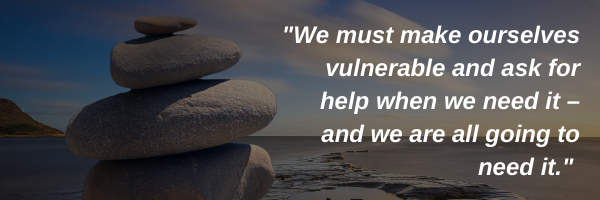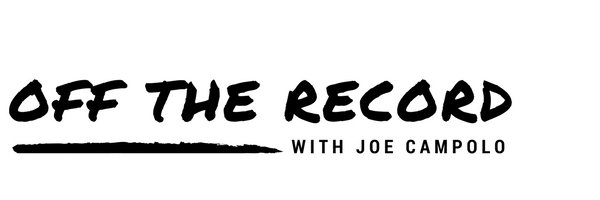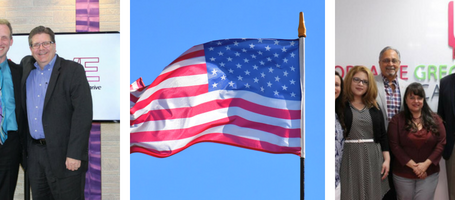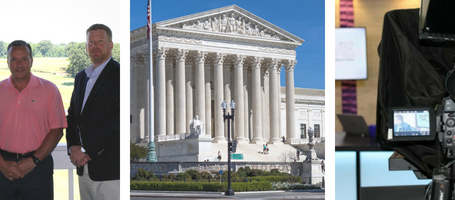“I’m not crazy, I’m just a little unwell” – Matchbox Twenty
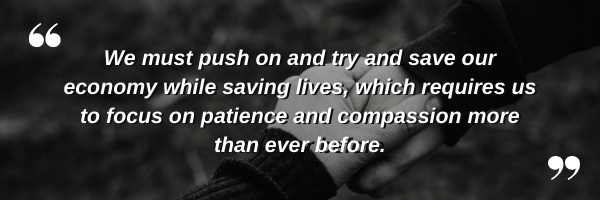
Notwithstanding the façade of social media, it’s hard to imagine that many of us are getting through this period without a struggle, and perhaps a significant one. How could we not; never in our generations’ history have we dealt with such prolonged uncertainly and stress, leaving us wholly unprepared on an emotional level as to how and what we should be doing. Normal stress relievers are made more challenging by isolation and quarantine, leaving us all a little lost.
This time has been quite a challenge for me personally. For my entire life, I have struggled with manic OCD which, with the periodic help of a trusted therapist, I have been able to manage for the most part and keep moving in a positive direction. The manifestation of this is not in the form of hand washing (although that could be helpful right now) or checking things, but instead it causes my mind to work at a rapid pace of analysis and over-analysis, leading me to want to have control over things to help prevent the numerous doomsday scenarios I have conjured up.
As a lawyer and business owner, these traits generally serve my clients well; from the standpoint of personal relationships over the years, perhaps not as well. As stress is an accelerant to this condition, over the years I have found myself needing to find new strategies to help keep things on a manageable level when encountering new levels of stress. And while I thought that I had encountered quite stressful situations in the past (military deployment, divorce, launching a business on the heels of a recession, death of my father), none of those included being locked down and thus did not prepare me at all for this extreme feeling of lack of control. For a manic thinker, this becomes a perfect storm.
For the first few weeks, I felt as though I had been hit in the head with a bat. The feeling of free-fall was as endless as the bad news seemed to be. The inability to utilize any of the strategies I had developed in the past to regain control of the situation made me feel helpless. The inability to have any clear answers or a plan made me feel like I was letting everyone down. Alcohol seemed to help ease the pressure, but that ultimately led to a dead end as well. I knew I needed to figure out new strategies so that I did not continue to slide even further.
So I did something I don’t usually do: I asked others for help. Although this sounds like common sense, for me reaching out and having to admit that I was struggling was incredibly difficult. In my mind, needing support and not having the answers equated to weakness, something I strive to avoid. But these are unprecedented times, and being there is no playbook, I took a chance and simply said “I am struggling and can use some help.” And an amazing thing happened: rather than causing people to question my ability to lead, it instead gave them reassurance that I was being realistic about the gravity of these times and my limitations, and gave them more comfort with me. Having done that, and having received incredible support, I now feel stronger than I ever have before. I now realize that asking for help and not knowing the answers is not a weakness; instead, it is true strength, for at that moment you are making yourself completely vulnerable to criticism and judgment. And I now have forged a much deeper and stronger relationship with those that I turned to and were there for me during my greatest struggle. How I wish I had done this sooner.
We are all going to need extra support as these weeks turn to months. We have no idea what the impact will be not only on the economy, but also on the re-socialization of our society. People are scared, sick, depressed, and angry at levels we have never had to navigate before. Social rules have changed and continue to change. That necessitates that we change also. We must push on and try and save our economy while saving lives, which requires us to focus on patience and compassion more than ever before. To keep that balance, we must do a deep inventory of ourselves and understand that coping mechanisms from the past just may not be enough to get us through these times. In short, we must make ourselves vulnerable and ask for help when we need it – and we are all going to need it.
